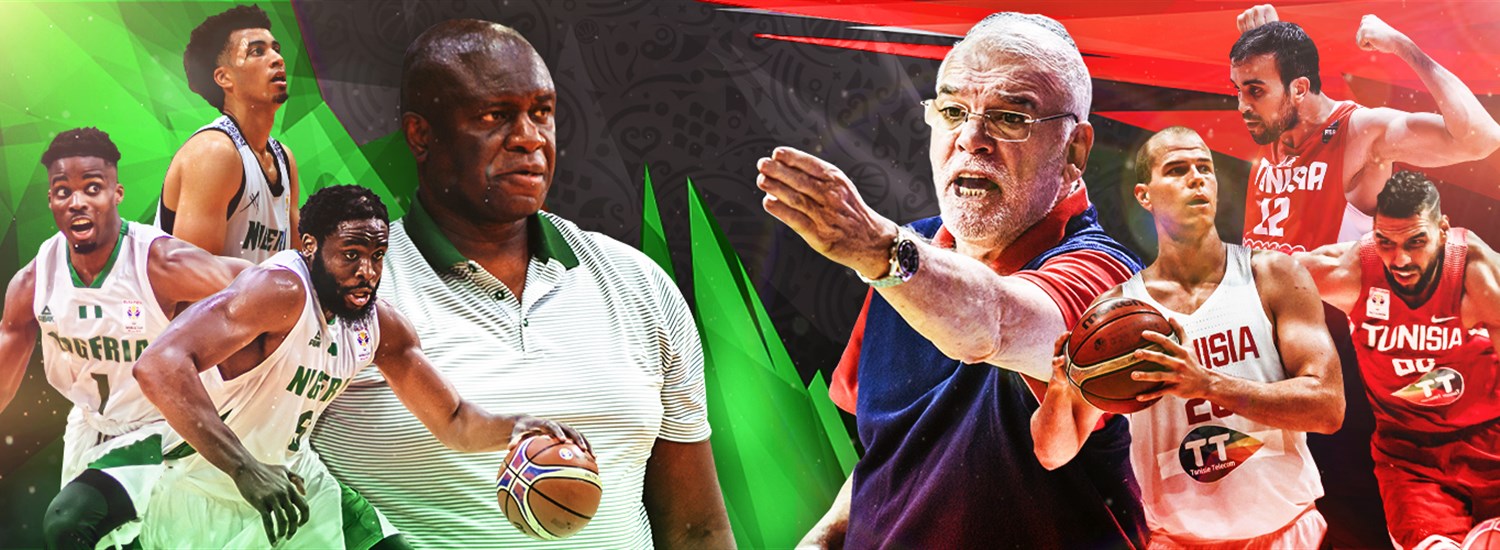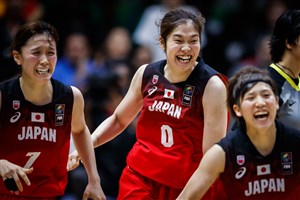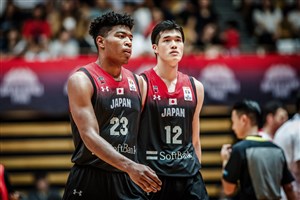
Nigeria and Tunisia - Undisputed kings of African basketball
SHEFFIELD (Julio Chitunda's African Message) - There are no more questions about who the new rulers of African basketball are.
Unlike the current FIBA World Ranking, which ranks Tunisia at No. 5 in Africa, the North Africans have reminded everyone why they became one of the most respected teams on the continent.
 Over the past weekend, Tunisia and Nigeria - reigning and vice-champions of Africa, respectively - proved too much for their opponents, dismantling high-ranked teams like Angola and Senegal by as many as 20 points each.
Over the past weekend, Tunisia and Nigeria - reigning and vice-champions of Africa, respectively - proved too much for their opponents, dismantling high-ranked teams like Angola and Senegal by as many as 20 points each.
Tunisia and Nigeria needed only nine of their twelve Africa Qualifiers games to qualify for next year's FIBA Basketball World Cup in China.
On the way to the China 2019 showdown, Tunisia beat Cameroon, Chad, Guinea, Egypt, Angola, and Morocco while Nigeria got the better of Mali, Rwanda, Uganda, Cote d'Ivoire, Central African Republic, and Senegal.
🇳🇬 Nigeria is the first team to officially qualify for the FIBA Basketball World Cup 2019! Congrats D’Tigers!#FIBAWC pic.twitter.com/2jDGssbFEx
— Basketball World Cup (@FIBAWC) September 15, 2018
Therefore, both countries will play the next windows in November and February, respectively, as a mere formality although Nigeria coach Alex Nwora insists they haven't finished business.
Salah Mejri played for his country for the first time since 2015, and the outcome couldn't be any better.
We are in !
— Salah Mejri (@50Mejri) September 17, 2018
We have made it !
Thank you all for your inconditional support and trust ❤🇹🇳 #China2019 #FIBAWC #tunisia #TheMej #SalahMejri pic.twitter.com/7o0D16fdrd
Of course, hosting the last qualifying windows in two months has partially contributed to both countries' success, but this doesn't hinder Tunisia and Nigeria's achievements.
The feeling is different when it’s for the motherland 🇳🇬 pic.twitter.com/fvSjKro2AS
— Ikenna (Ike) Iroegbu (@Be_LikeIKE) September 18, 2018
"Obviously, Tunisia is a really good team, credit to them," admitted Angola head coach Will Voigt in a post-match press conference.
Meanwhile, Senegal play-caller Abdou Ndiaye followed suit, saying: "Tonight, they [Nigeria] were better than us, but we need one win to qualify for China."
With Tunisia and Nigeria dominating the World Cup African Qualifiers, so far, who else comes close to them?
Only 3 tickets left to the FIBA Basketball World Cup 2019 for African teams! Who will join 🇳🇬 & 🇹🇳 ?
— Basketball World Cup (@FIBAWC) September 17, 2018
Full standings: 📈 https://t.co/iO2xj8nIX4
How to qualify: ➡ https://t.co/Ky79yFWb1V#FIBAWC pic.twitter.com/ScBk9FQ0Gy
Angola, Senegal, Cote d'Ivoire, and Egypt were impressive in the first leg of the Second Round of the World Cup Qualifiers and indicated they too can join Tunisia and Nigeria in China.
Following Angola's' poor showings in recent years and months, the former African champions re-emerged stronger, composed and revitalized in Rades.
Coach Voigt may have thought they didn't play their best basketball in the first half against Tunisia (they trailed 39-36), but, that was Angola's best 20 minutes over the last three years.
"If we execute what we want to do, we can compete with anybody," Voigt noted.
There is hope for Angola though.
When I first met Egypt head coach Amr Aboul Kheir last week in Rades, the day before of the start of the Second Round of the Qualifiers, his first question to me was, "what kind of team has Cameroon brought here?"
In the aftermath of Egypt's 62-58 win over Cameroon, who put themselves in a difficult position, Aboul Kheir revealed: "Our target was Cameroon. The key [to our victory] was our defense."
Egypt returned home with an encouraging 5-4, and currently sit as the best third-place team in the African Qualifiers.
As coach Ndiaye mentioned, Senegal - the current No. 2 team in Africa - had a bad against Nigeria, but this is, surely, a World Cup contender.
The real Cote d'Ivoire is back, and winning two of their three games in Lagos was a positive sign for a country trying to return to the World Cup for the first time since 2010.
But until the last window of the African Qualifiers in February 2019, African basketball will be all about rulers Nigeria and Tunisia.
Julio Chitunda
FIBA
FIBA's columnists write on a wide range of topics relating to basketball that are of interest to them. The opinions they express are their own and in no way reflect those of FIBA.
FIBA takes no responsibility and gives no guarantees, warranties or representations, implied or otherwise, for the content or accuracy of the content and opinion expressed in the above article

















